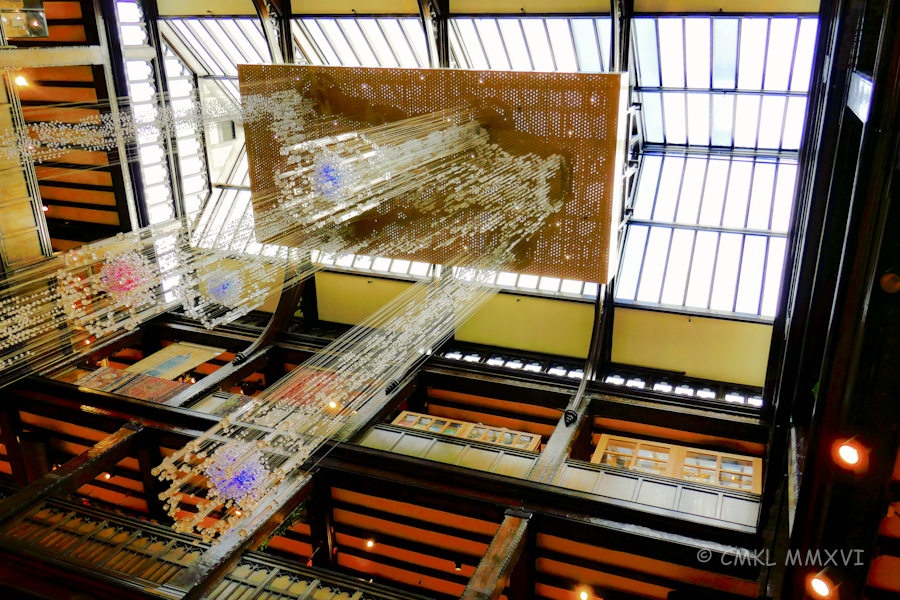
Tea. High tea. Cream tea. Ever so quintessentially English.
You may have noticed that we travel quite frequently. This year alone, we went to Caunes-Minervois, Barcelona, Granada, Munich, London, and Plymouth – and it’s still August.
How do we manage to take so many trips, you may very well ask.
If you’ve looked at the “About Photolera Claudinha” page in this blog, you already know that we travel most often via home exchanges, which I’ve also mentioned in a post here and there. But I have never fully explained this interesting way of seeing the world, one home at a time. Let’s do it now, shall we?
From our recent meanders through London, I netted a stack of random city shots, the usual, you know, shop windows, gravestones, food, lights, this and that. Allow me to enliven this introduction to Home Exchanges or House Swapping with the occasional cluster of colorful images.

The fundamental premise of Home Exchanges is the reduction of travel expenses by eliminating housing cost. Naturally, transportation expenses remain. However, since one has to eat no matter where one happens to be, removing the ‘Room’ portion from “Room & Board” significantly lowers the expenses of taking a vacation. Home exchange guests enjoy the use of a home where they can live like locals, shop at neighborhood markets and cook their own meals – unless, of course, they want to take advantage of whatever their temporary hometown has to offer in entertainment. Although there are plenty of three-day weekend and one-week exchange opportunities, most house swaps average two to three weeks, especially if costly air travel is involved. Staying in your desired vacation spot for a rent-free couple of weeks vaporizes the stress of the usually hectic sight-seeing schedules or a bad weather panic. If it rains, so what, just cuddle on the veranda with a glass of wine. The concept of swapping one’s home for a residence in a specific location provides travel opportunities in a variety of different situations. For example, extended families or families with multiple children avoid having to rent large vacation cottages, while retired folks may negotiate a longer stay near their grandchildren.
A home exchange has a twofold requirement. First of all, you must have a home suitable for an exchange. The second requirement is emotional. Like the three bears, you have to come to terms with the fact that complete strangers will be sleeping in your bed.
A home can be a single family home, a flat, a condo, a houseboat or a yacht, a city loft or a country retreat, a contemporary ski chalet or a Medieval castle, a bus, caravan or RV – any livable entity, fixed or movable, you’re legally entitled to offer in exchange for someone else’s home for a specified period of time. Trust me, there are some wild options out there! If you’re renting or leasing your home, make sure your contract allows friends to stay on their own. In most instances, this isn’t a problem since no money changes hands.
And where is “out there”? Well, cyberspace, of course!

There are many websites dedicated to home exchanges, a couple of which I’ll list at the bottom of this post after having received some input from my husband who is in charge of exchange logistics. When he’s not modeling for my pictures, that is.
We are in the enviable position to be able to offer two homes for exchange, our actual home in Saintes and a vacation place in Costa Rica. And as retirees, we have plenty of spare time to travel.

Our home in France, however, is not a very desirable property for exchanges because we restrict a swap to one couple, no children or pets allowed. Our house is very vertical with steep stairs, and we have some delicate mid-century furniture not suited for boisterous children, thus leaving only a small potential exchange pool.
Costa Rica, on the other hand, is a highly desirable vacation destination and our house in the hills above the town of Atenas is great for a family trip or for two couples traveling together because the second bedroom suite is separate from the main house.
Once you have decided you are interested in home exchanges, you have to identify the home exchange website(s) most promising for your situation. Some websites specialize in regard to the homes advertised, for example, luxury homes only; others target a specific group, like retired members only, or teachers only and so forth. Some upfront research into the different websites is imperative – there are sites that are scams, so care is important! You pay the website administrators to run an ad of your home and they also facilitate the communication between interested parties so that anonymity is preserved until you choose to communicate directly with your exchange partner. The cost for your ad varies, as does the quality of the websites and the services offered.
Next, you have to prepare your ad. The websites usually provide forms in which you mark the specifics applying to your home, like the type of dwelling, location, appliances, the number of bedrooms, child-friendly and so forth. As a frequent home swapper, I can’t stress enough how much we appreciate detailed information in a home listing. How wide are the beds? How many toilets? And especially for winter travel, is there a clothes dryer? How far is it to walk to the nearest grocery store? Is plant or pet care expected? Really! In one exchange, without prior warning, I found myself in charge of 47 flower boxes and pots. In another exchange, we looked after flower boxes in five windows, one fish and one cat who hated us. It’s an adventure!!
Let’s take a short break and look at the charming 1920s Liberty department store, which was constructed in mock Tudor style using the timber from two decommissioned ships of Her Majesty’s fleet.

The ad for your home should include clear photos of your property, showing rooms and spaces, just like a real estate ad, plus a view as seen through a window or from a balcony. Each website has its own size requirements for the pictures, sometimes excluding portrait orientation. Some websites limit the number of pictures you can post, others make the number dependent on the type of membership you have purchased.

In your home exchange ad, you can mention the regions or countries or cities you would most like to visit, as well as timeframes and exchange duration. Many people are open to any destination and simply post “surprise us”.
An important factor in the world of happy home exchanges is your willingness to communicate reliably with your potential exchange partner. You have to monitor your ad on a regular basis and answer all inquiries promptly, just as you are eager to receive an answer after you knocked on someone’s door. Even though no money changes hands in a home swap, it is a serious commitment. Once you have agreed to an exchange both partners are locked into a promise which would be very costly to break. Just think of non-refundable airline tickets! Some of the websites offer a contract both exchange partners have to sign. I’m not sure to what extent this would change the legal basis of a swab, but it certainly brings the gravitas of the arrangement to the fore.
A few thoughts on how you should prepare your home for exchange guests. In my experience, the top of this list should read “space”. Make room in your closets so that your guests have shelf space and a space with empty hangers in the bedrooms and shelf space in the bathrooms as well. Take some of your tchotchkes off the dressers, nightstands and the tub surround to create clean surfaces for your guest’s toiletries and other small items. They will also need spaces to put down their devices, and, most importantly, outlets to plug in the chargers. Available outlets for electronics, that’s always an issue. If you want to be extra-super considerate, you could make a couple of universal plug adaptors available to foreign guests. Just a thought! Nice touches in the bathroom are tissues and a magnifying mirror, while a hairdryer is a given, I would think.
And speaking of hair dryers, sometimes you’ll be surprised how country-specific differences can throw you for a loop. In the US and also here in France, I’ve always used my hair dryer in the bathroom. Not so in the United Kingdom! When we noticed that there were no outlets in the bathrooms of our first English exchange home, we dismissed it as a quirk. In our second English exchange, I couldn’t find a hairdryer until being told to check in a bedroom drawer. Again, there were no outlets in the bathroom. The penny finally dropped, when I discovered a nicely bagged hair dryer hanging next to the ironing board in the wardrobe of our hotel in Bristol – and no outlets whatsoever in the bathroom. In England, they have the strictest laws for domestic electricity anywhere. With the exception of wimpy shaver-outlets, British regulations don’t allow for electric appliances in a wet environment. It’s as simple as that! I am mentioning this to point out the necessity for a detailed set of “Guest Instructions”, one where you don’t take anything for granted. What seems logical to you, might stupefy your guests. More on that later.
And then, there is the kitchen. Guests appreciate having the basics in equipment and supplies, like condiments, paper towels, dishwashing and laundry detergents, toilet paper and so forth. Most of us use a car to drive to a super-center and purchase staples, usually in the much more affordable multi-packs or large sizes. Now imagine your foreign guests without transportation having to schlepp home sugar, oil & vinegar, ketchup, and laundry detergent. Not fair, is it? And quite costly for a brief stay. We had to buy laundry detergent and garbage bags in two of our three latest exchanges, while the third was so well stocked that we only needed fresh food from the market, a nice balance!
Although part of the exchange fun is exploring the mystery of a strange kitchen, do note in your ad, or at least in a subsequent communication, if your equipment doesn’t conform to expected norms. For example, if you do not own any coffee or tea making devices, not even an electric kettle, please mention it, so that your guests can plan accordingly.
Look through your fridge and discard anything with an upcoming sell-by-date or otherwise limited live expectancy. And, please, please, throw out that two-year-old jar of an exotic preserve, no matter how attached you have become to the lively range of fungal growth inside!

The beforementioned guest guide is a useful tool to ease your guests into the workings of your home. You provide information about WiFi passwords, keys and such, as well as little warnings about the idiosyncrasies of your living space. The guide should include practical pointers for daily living. Where are the closest shops and markets? Discount drugstores? Casual dining? Doctor? Wine dealer? Your guests will appreciate your thoughtfulness in putting together a booklet for them, these strangers who may feel quite disoriented at first. We make both an e-version, send out ahead of time, and a hard copy at the house available for our exchange partners.
In our experience, there are two main types of home exchanges. One with a “genuine” family home, the other with a vacation or rental apartment, in other words, a secondary residence. The real family homes can be more cluttered, making it more difficult to find your own space within. On the other hand, they’re usually better equipped in the kitchen and pantry. By comparison, vacation places are usually more neutral and the closets are conveniently bare – as are the fridges. Another aspect of main home versus secondary residence is the actual exchange schedule. With a family home, one usually exchanges simultaneously with the partner family, while a secondary home often allows for a non-simultaneous swap, making scheduling somewhat easier, especially if you want to exchange outside of school vacation periods. Some homeowners also make their cars available for swabs. That is clearly a personal decision depending on many factors. Housekeeping services are also handled on an individual basis. They are often included in the exchange, ours are, but there may also be separate charges.
We all know this world isn’t perfect, so let’s not quibble about the inevitable exchange downsides. We once exchanged with a gorgeous Renaissance age Hôtel Particulier in the South of France, only to find the bathrooms barely fit for use. During our most recent exchange in a fourth floor [5th American] flat, the elevator died on our first full day there and remained inoperable for the next 12 days. Pros and cons, such is life. One just goes with the flow and focuses on the multitude of positive aspects. These opportunities to travel to foreign shores and experience life in someone else’s shoes, as it were, are unique and much appreciated by these seasoned home exchangers!
Lastly a word on heirlooms and irreplaceable breakables. Put’em away!! Seriously, create a lockable space in which you hide everything too precious to leave unsupervised with these strangers soon to be sleeping in your bed. Any beloved possession you couldn’t bear losing is a candidate for sequestering. As always in life, use common sense as your guide. Other than that, accidents happen and breakage is inevitable. If you’ve safeguarded your most precious possessions, stop worrying, there’s an IKEA around most corners! Clumsily, I recently managed to destroy the water tank in our host’s fridge. They not only took it in stride but refused my offer to pay for the needed replacement. This is the place in which the elevator died, so we shook hands [virtually] and moved on amicably. You see, in a home exchange – contrary to vacation rentals – YOU are in THEIR home while THEY are in YOUR home, and everybody is on their best behavior 🙂

One of the largest home exchange site is:
A smaller site with a number of really nice homes is:
If you have any questions, please post a comment and I’ll be happy to answer to the best of my experience.






















![London.Timeline.74-1030771 Monument for John Bunyan [The Pilgrim's Progress]](https://photoleraclaudinha.files.wordpress.com/2016/08/london-timeline-74-1030771.jpg?w=469&resize=469%2C469&h=469#038;h=469&crop=1)
![London.Timeline.76-1030774 Daniel Defoe né Foe's memorial [Robinson Crusoe]](https://photoleraclaudinha.files.wordpress.com/2016/08/london-timeline-76-1030774.jpg?w=523&resize=523%2C785&h=785#038;h=785)




















































![London.Exchange Making a mess of my [Eton] mess](https://photoleraclaudinha.files.wordpress.com/2016/08/london-timeline-22-1030260.jpg?w=539&resize=539%2C303&h=303#038;h=303)





















Thank you, Diana, you’re always so supportive!!
LikeLike
Thanks for all the useful info and, as usual, your photographs are lovely.
LikeLiked by 1 person